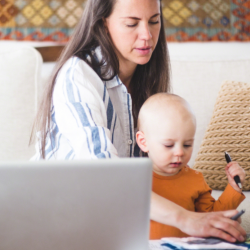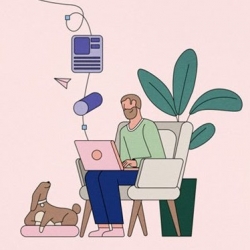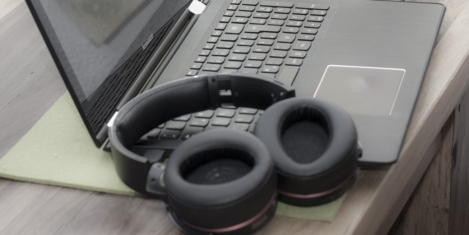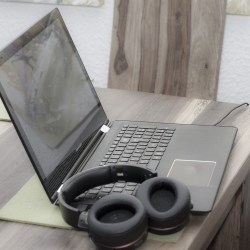To provide the best experiences, we use technologies like cookies to store and/or access device information. Consenting to these technologies will allow us to process data such as browsing behaviour or unique IDs on this site. Not consenting or withdrawing consent, may adversely affect certain features and functions.
The technical storage or access is strictly necessary for the legitimate purpose of enabling the use of a specific service explicitly requested by the subscriber or user, or for the sole purpose of carrying out the transmission of a communication over an electronic communications network.
The technical storage or access is necessary for the legitimate purpose of storing preferences that are not requested by the subscriber or user.
The technical storage or access that is used exclusively for statistical purposes.
The technical storage or access that is used exclusively for anonymous statistical purposes. Without a subpoena, voluntary compliance on the part of your Internet Service Provider, or additional records from a third party, information stored or retrieved for this purpose alone cannot usually be used to identify you.
The technical storage or access is required to create user profiles to send advertising, or to track the user on a website or across several websites for similar marketing purposes.
 Individuals with low mindfulness exhibit more uncivil behaviour at work and are least civil on Monday before improving throughout the week, claims new research from BI Norwegian Business School and Maastricht University. (more…)
Individuals with low mindfulness exhibit more uncivil behaviour at work and are least civil on Monday before improving throughout the week, claims new research from BI Norwegian Business School and Maastricht University. (more…)








 The pandemic has certainly opened our eyes to the importance of constantly washing our hands, sterilising everything in sight and realising just how far germs can travel through the air, causing us to wince at the thought of a time where we huddled on public transport without masks. However, as we contemplate heading back to the office in the near future, businesses need to translate these learnings into workplace design and move indoor air quality to the top of the agenda.
The pandemic has certainly opened our eyes to the importance of constantly washing our hands, sterilising everything in sight and realising just how far germs can travel through the air, causing us to wince at the thought of a time where we huddled on public transport without masks. However, as we contemplate heading back to the office in the near future, businesses need to translate these learnings into workplace design and move indoor air quality to the top of the agenda. 
 A new BCO research paper,
A new BCO research paper, 
 New data from
New data from 
 As employees continue to be forced home during the pandemic, nearly half of them are reporting high levels of exhaustion. A new study by
As employees continue to be forced home during the pandemic, nearly half of them are reporting high levels of exhaustion. A new study by 


 Despite the financial hardship wrought by COVID-19, half of employers (49 percent) don’t have a financial wellbeing policy. This is according to the latest
Despite the financial hardship wrought by COVID-19, half of employers (49 percent) don’t have a financial wellbeing policy. This is according to the latest 
 An innovative little box that resembles a Rubik’s cube is making its way into corporate workspaces to assist facilities managers and HR teams gauge energy consumption and monitor the building’s efficiency, as well as track air quality, temperature and overall comfort of their physical surroundings. It’s all about better buildings. If individuals feel good in their workplace, they’re more likely to care about (and take care of) the buildings where they spend a large part of their days. And to ensure that the sample is truly representative, each individual can have a lightweight and portable
An innovative little box that resembles a Rubik’s cube is making its way into corporate workspaces to assist facilities managers and HR teams gauge energy consumption and monitor the building’s efficiency, as well as track air quality, temperature and overall comfort of their physical surroundings. It’s all about better buildings. If individuals feel good in their workplace, they’re more likely to care about (and take care of) the buildings where they spend a large part of their days. And to ensure that the sample is truly representative, each individual can have a lightweight and portable 
 The COVID-19 pandemic has brought anxiety to many, but people are positive about their work, claims a new survey from
The COVID-19 pandemic has brought anxiety to many, but people are positive about their work, claims a new survey from 
 People working from home during the pandemic are experiencing higher levels of stress and withholding mental health conditions from their employer, for fear of a negative impact on career progression, according to a new
People working from home during the pandemic are experiencing higher levels of stress and withholding mental health conditions from their employer, for fear of a negative impact on career progression, according to a new 
 The much discussed idea of Zoom fatigue turns out to be a real phenomenon according to new peer reviewed research from Stanford academics. The study published in the American Psychological Association’s journal
The much discussed idea of Zoom fatigue turns out to be a real phenomenon according to new peer reviewed research from Stanford academics. The study published in the American Psychological Association’s journal 








March 15, 2021
Workplace anthropology will help us make sense of the now and anticipate what’s next
by Christopher Diming • Comment, Wellbeing, Workplace design